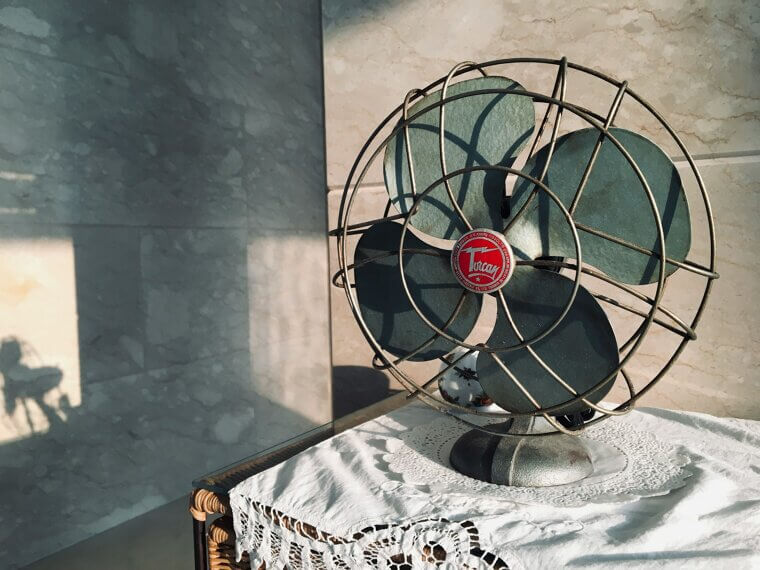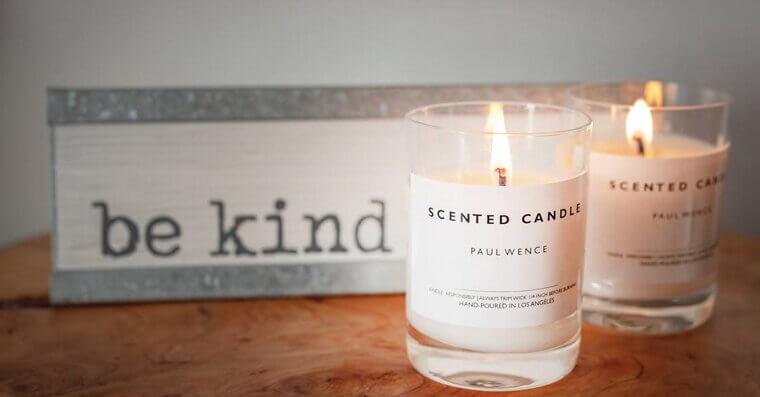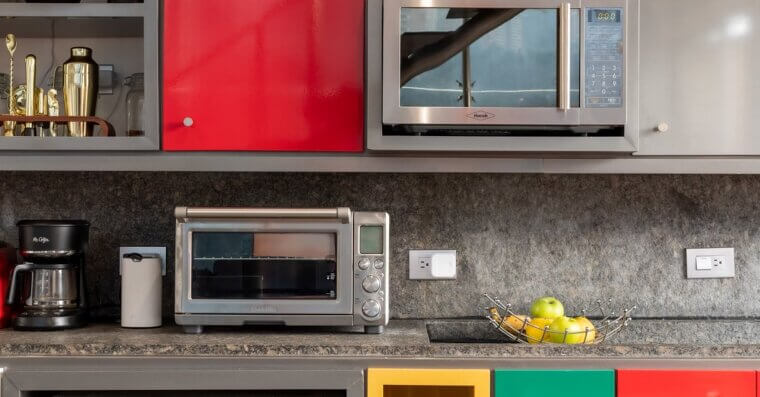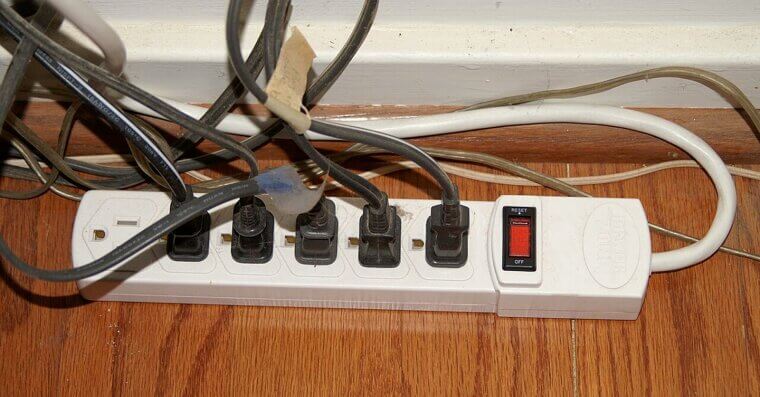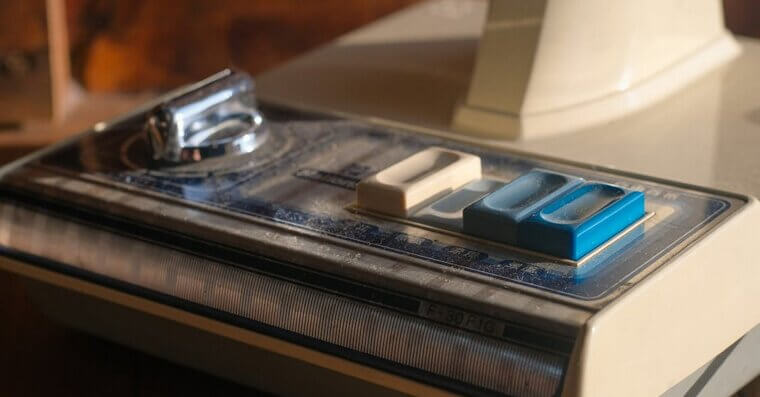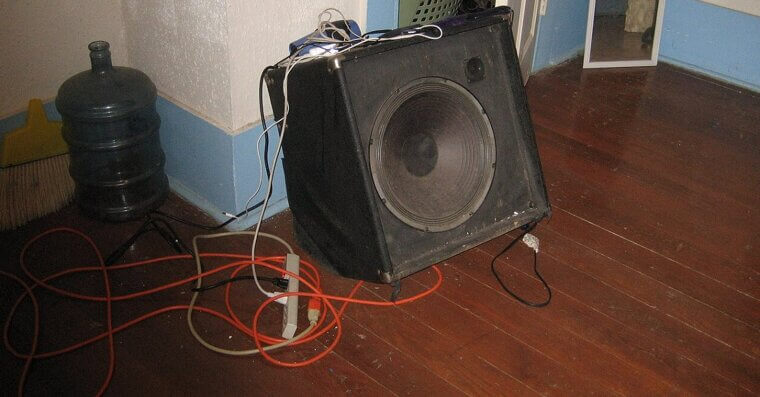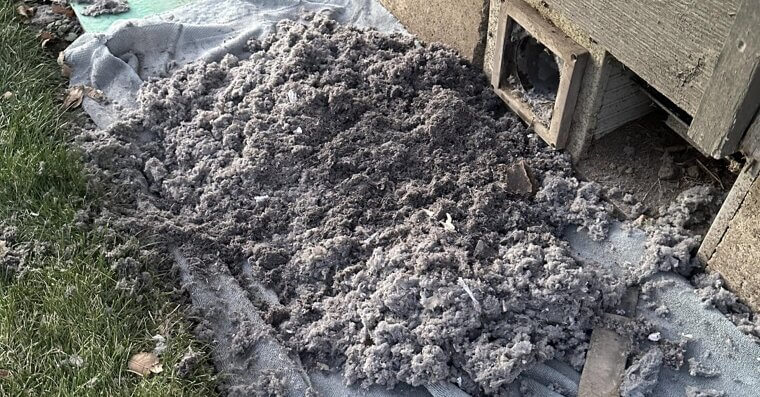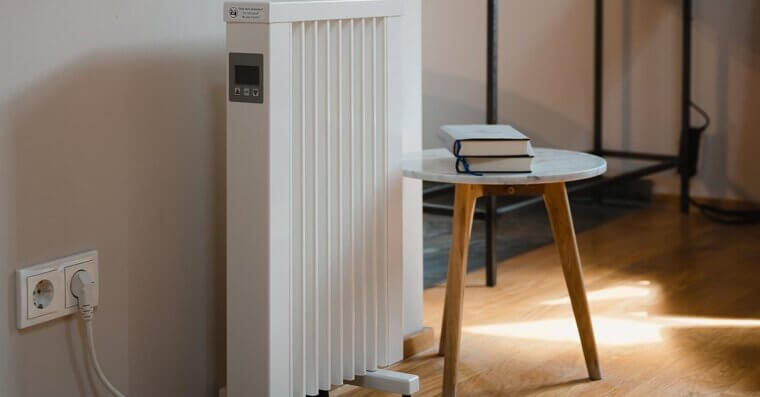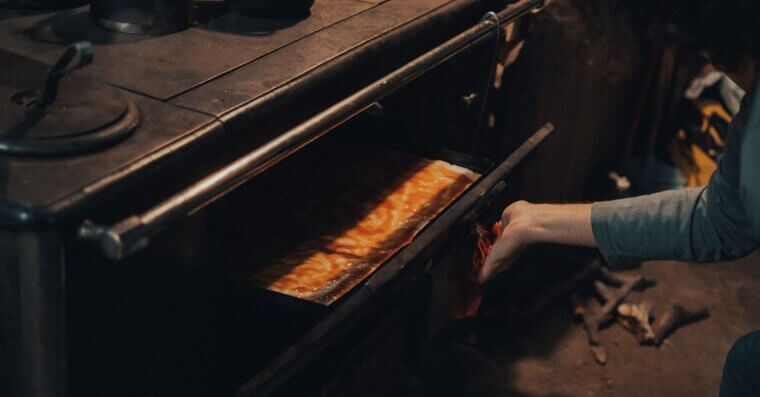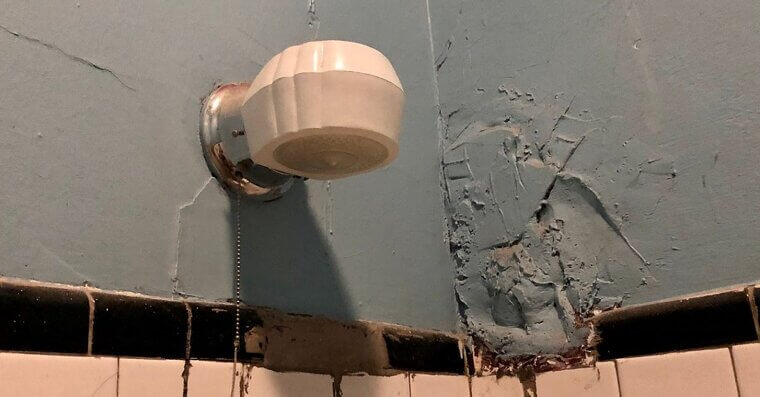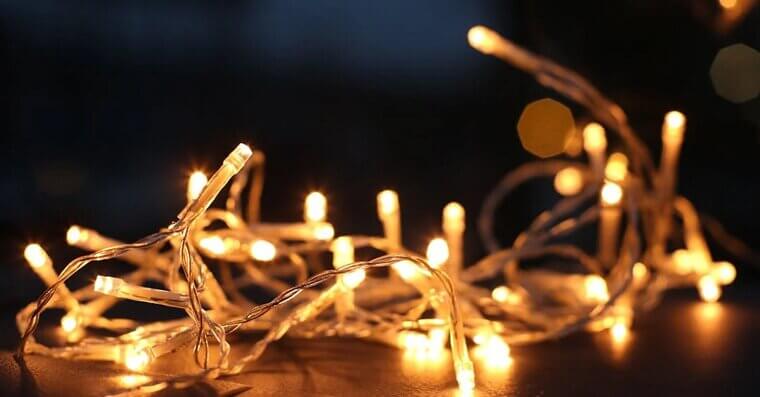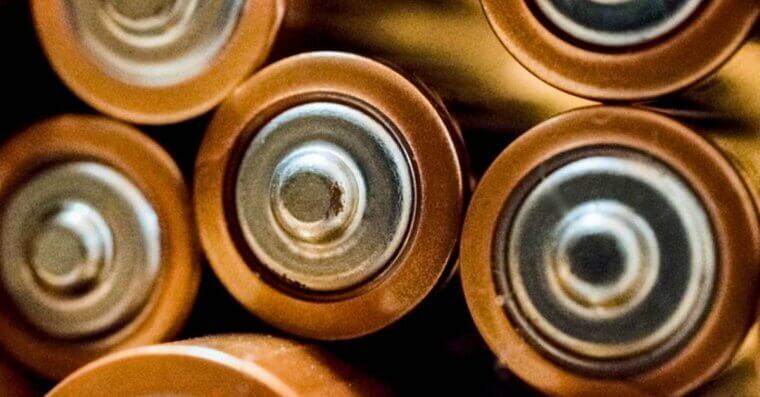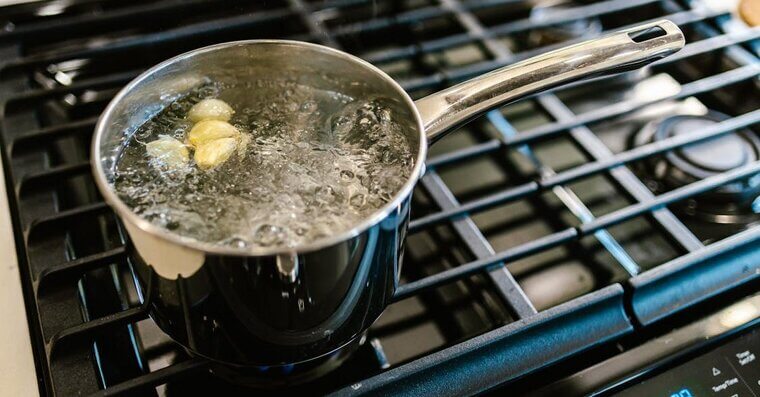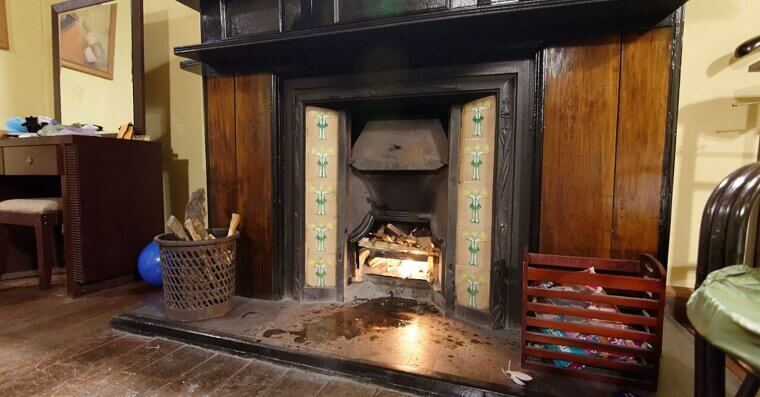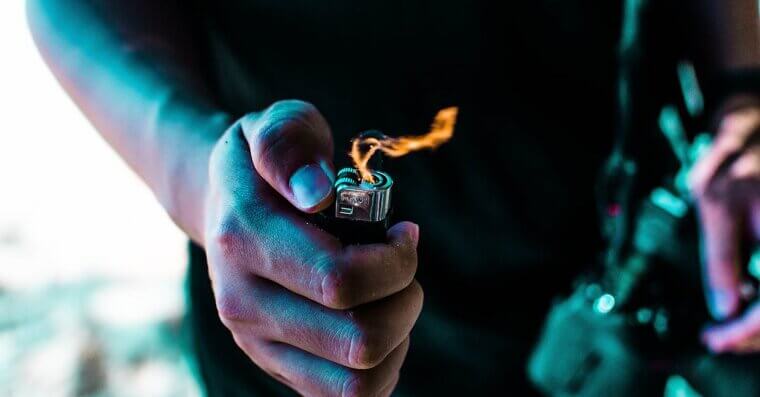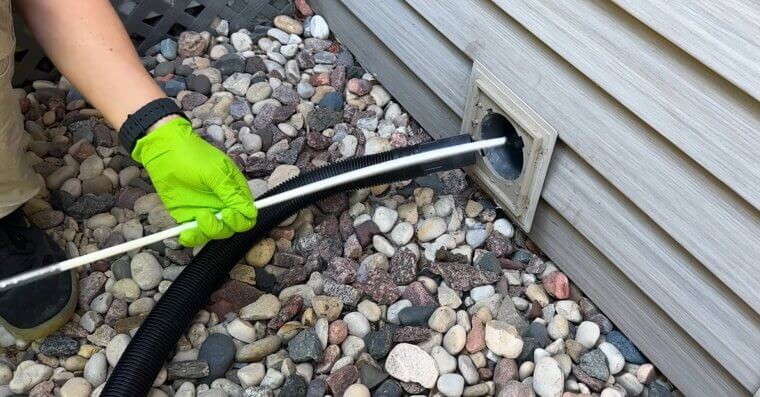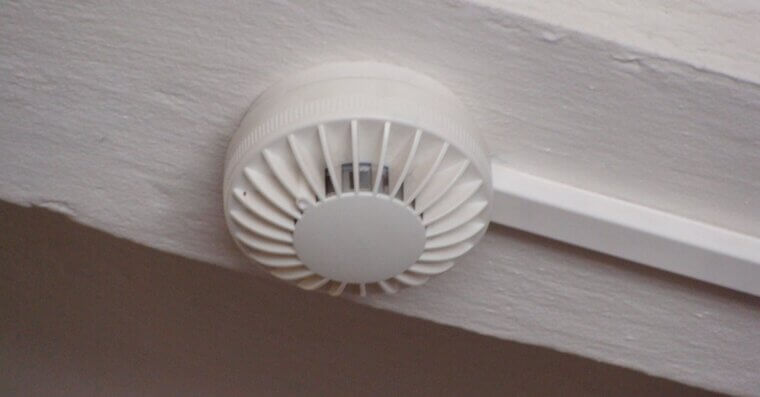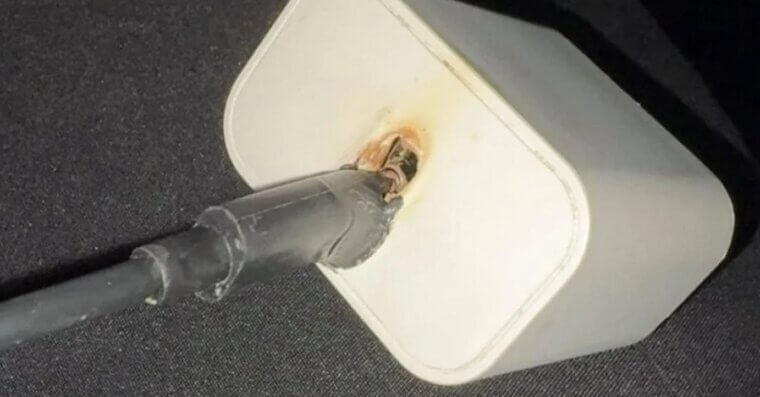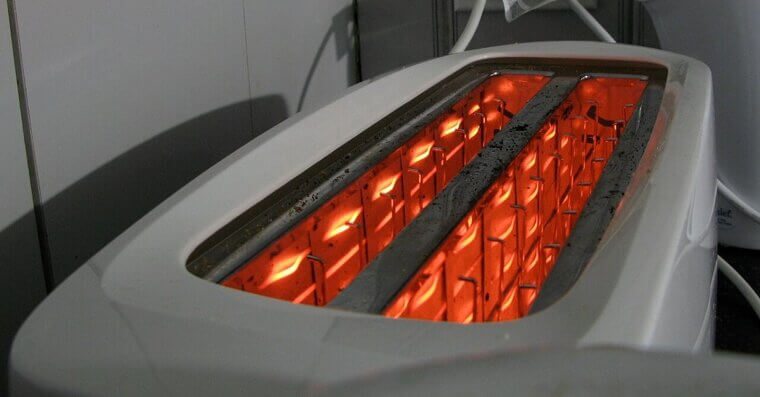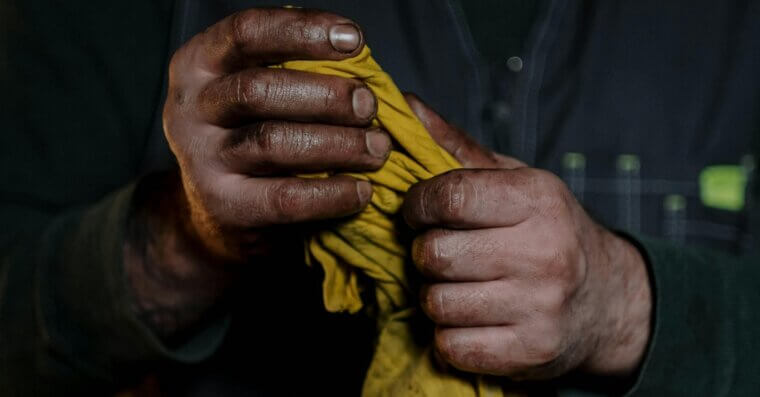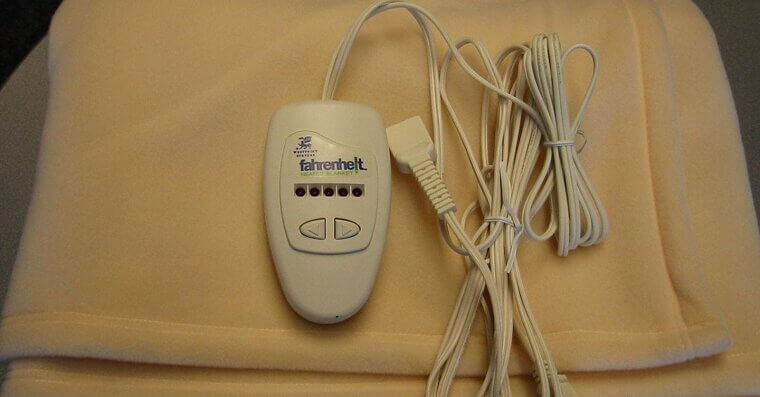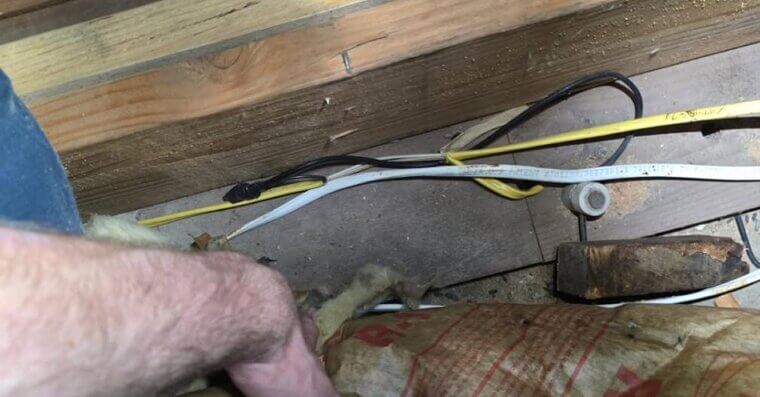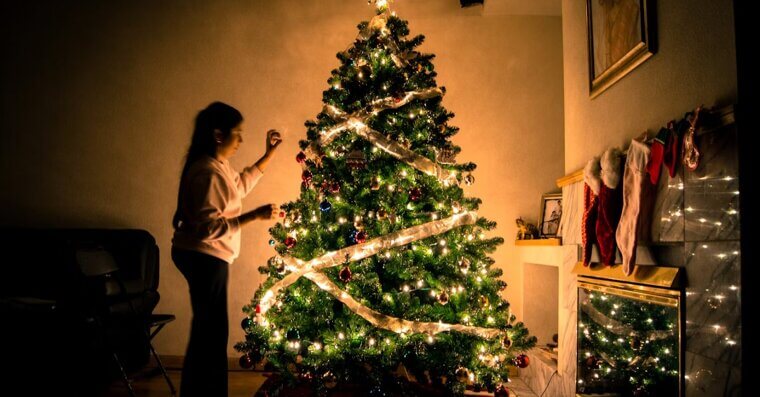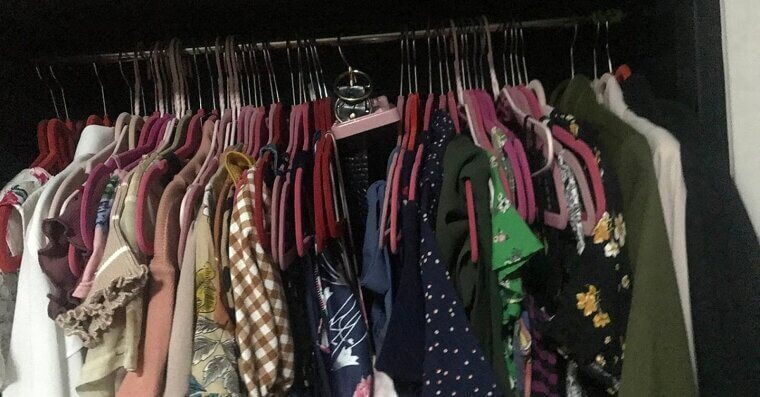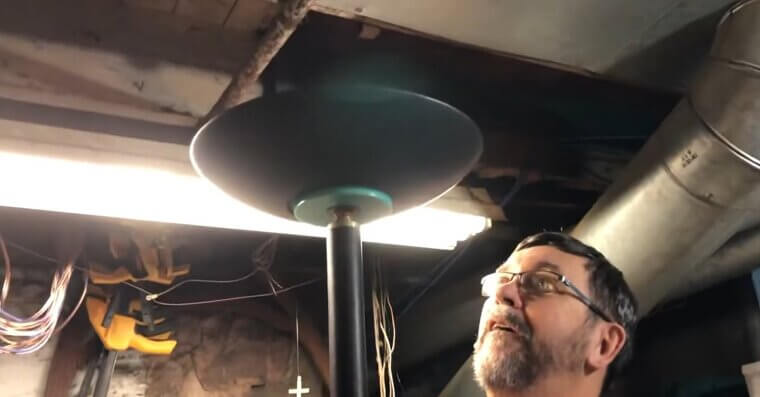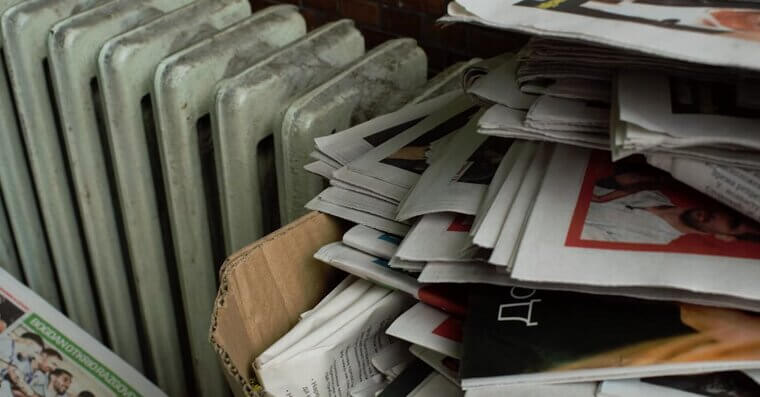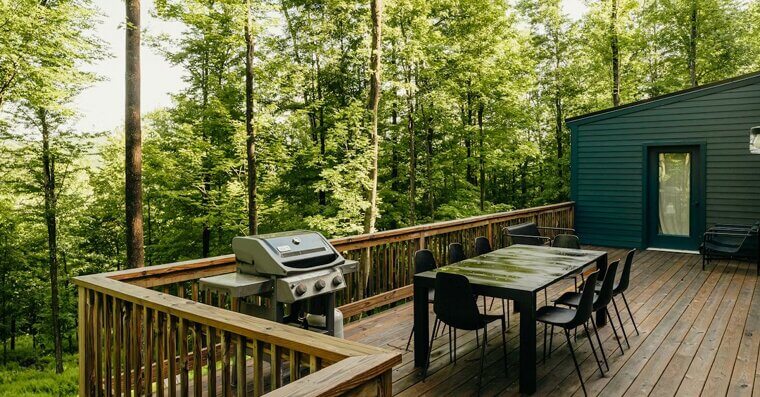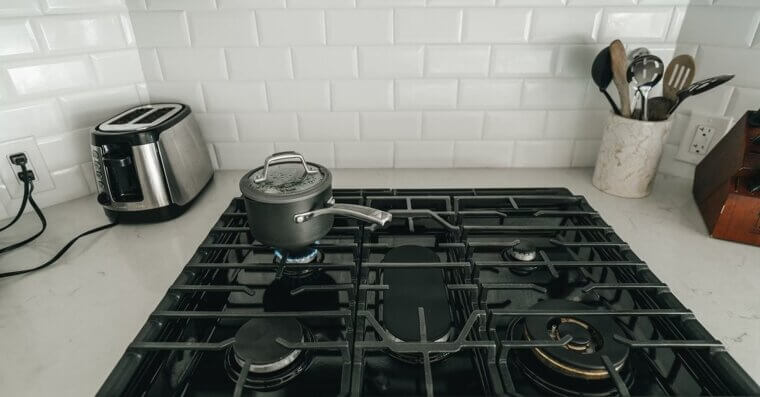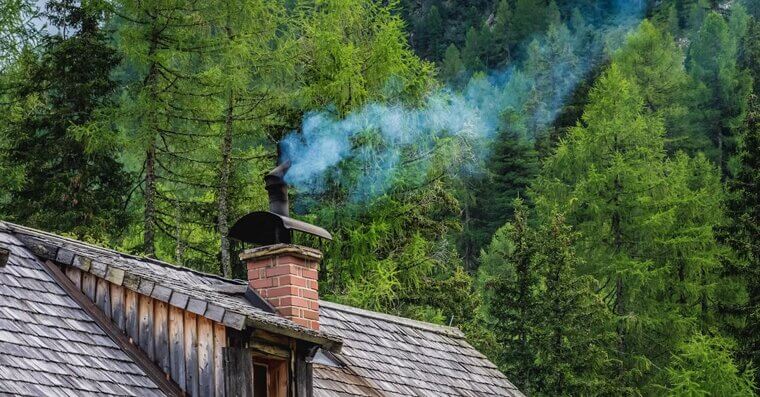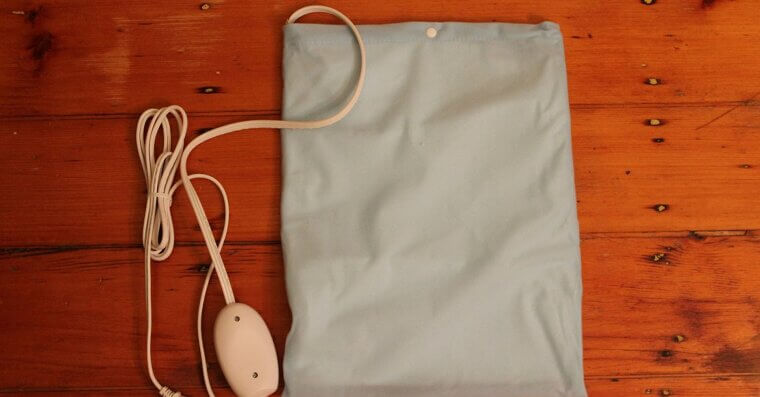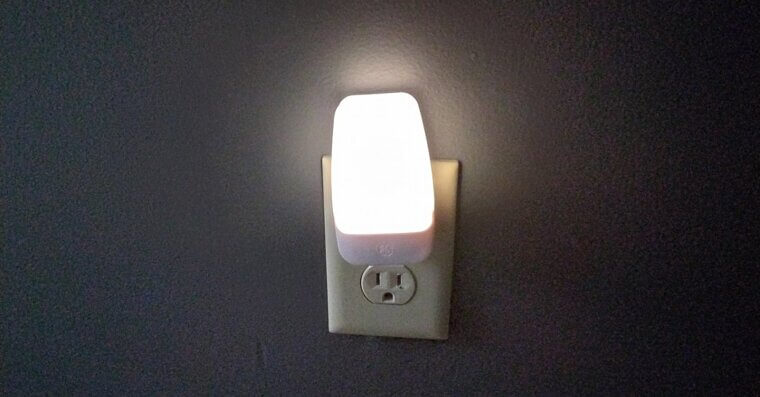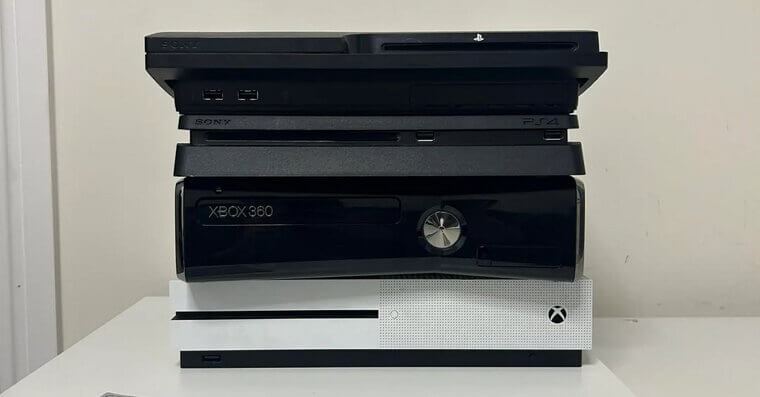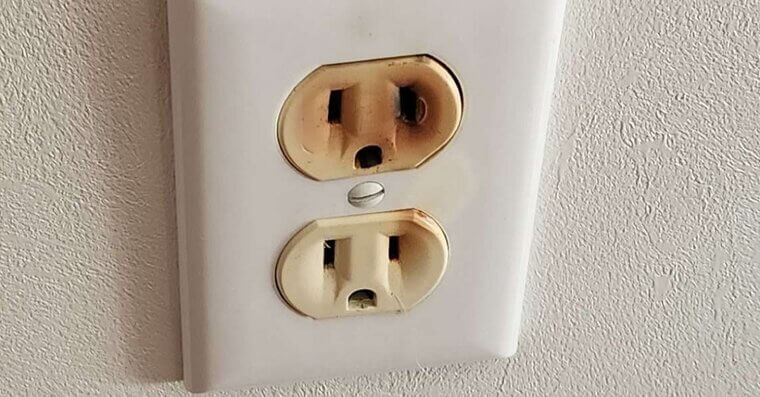Portable Fans
Old box fans or oscillating fans sometimes overheat when motors get dusty or bearings wear down. Since people often run them for hours, that heat builds fast. If your fan makes odd noises, smells hot, or has a frayed cord, it’s time to replace instead of risking it.
Forgotten Candles
Candles set the mood and all, but leaving them unattended is one of the most common home fire causes. Pets, kids, or even a draft can knock them over in seconds. If you love candlelight, try flameless LED versions - they look real and won’t burn your house down if you forget about them.
Microwave Misuse
Accidentally microwaving foil, metal-trimmed plates, or even cutlery can spark fast. Fires in microwaves spread quickly because of the confined heat. Always double-check what you’re putting in, and never leave the kitchen while it’s running.
Overloaded Power Strips
If you’re a big fan of your devices, it’s tempting to plug in everything at once, especially behind a computer desk or TV stand. But those strips can only handle so much power before they overheat and become a fire risk. Don’t risk your life by playing your Xbox and making a smoothie while blasting music at the same time.
Dust Buildup Around Outlets and Appliances
It might seem harmless at first, but dust acts like tinder when it collects near outlets or behind appliances. A single spark or overheated plug can ignite it. Regular vacuuming in all those places you’ve forgotten makes a huge difference.
Old Extension Cords
Frayed cords, cracked insulation, or cheap cords running under rugs can quickly turn into a fire. Many people keep using them, thinking it still works at least, but that risk isn’t worth it. Replace damaged cords right away and never overload them with too many devices. Better safe than sorry.
Dryer Lint Traps and Vents
Dryer lint is one of the biggest hidden fire hazards in a house. Even if you clean the trap after each load, lint still builds up inside the vent hose. When airflow gets blocked, the dryer overheats and can spark. Give those vents a deep clean every few months to stay safe.
Clutter Around Heaters
Portable space heaters are cozy in winter, but they need plenty of breathing room. Putting them too close to blankets, curtains, or stacks of laundry is a recipe for disaster. Always keep at least three feet clear around a heater.
Grease Buildup in Kitchens
That thin layer of grease on your stove hood, backsplash, or even inside your oven is highly flammable. A sudden flare-up while cooking can spread flames faster than you’d expect. A quick wipe-down after cooking and deep-cleaning the hood filters regularly can prevent an easy-to-overlook hazard.
Old Light Fixtures
Older lamps or ceiling fixtures with worn wiring can heat up more than they should. Adding bulbs with higher wattage than recommended just makes it worse. If you notice flickering, warmth around the socket, or a burnt smell, swap out the fixture immediately.
Holiday Lights
Many people reuse their holiday lights year after year without checking for damage. Cracked wires and broken bulbs can spark and start a fire. Inspect the lights every year and try to get the more expensive kinds where possible.
Storing Batteries Improperly
Loose batteries tossed in a drawer with coins or paperclips can short out and spark. That tiny burst of heat can ignite paper clutter nearby. Keep spare batteries in their packaging or a small container, and recycle old ones quickly instead of letting them roll around forgotten.
Unattended Cooking
It’s thought that the number one cause of house fires is walking away from the stove. Oil boils over, a pan overheats, food burns, and suddenly you and your house are in serious danger. Even if you just step out for a minute, it’s seriously risky.
Fireplace Ash Disposal
Many people scoop cooled ashes into a bag or plastic bin, thinking the fire’s long gone. But embers can smolder for days. If they touch paper or plastic, they’ll reignite. Always store ashes in a metal container with a lid and keep it outside, away from the house.
Storing Flammable Liquids Indoors
Paint thinner, gasoline, or lighter fluid should never be kept in a hot garage or basement near heaters or appliances. Fumes alone can ignite with a spark. Store them in tightly sealed containers, preferably outside in a shed, and in the smallest amounts possible.
Blocked Dryer Exhausts
Aside from lint buildup, outside dryer vents sometimes get blocked by nests, leaves, or even snow. That backup can cause the dryer to overheat. Make sure vents are clear and the flap opens easily. It’s a five-minute check that can prevent a fire in one of the most common spots.
Old Smoke Detectors
A dead or even just outdated smoke alarm won’t warn you about fires early enough. Most people forget they only last about ten years. Replace the whole unit if it’s old, not just the batteries. A few bucks can literally be the difference between a scare and a disaster that burns your house down.
Overheated Chargers
Phone and laptop chargers that feel hot to the touch, especially cheap third-party ones, can easily ignite. Leaving them plugged in overnight or while sitting on a couch cushion traps heat. Stick with good-quality chargers and unplug them when not in use - it’ll extend their life too.
Toaster Crumbs
It’s easy to forget the bottom tray of your toaster, but crumbs build up and can ignite when heated. That little spark can turn your breakfast into an emergency. Empty the tray regularly and never leave the toaster running unattended.
Oily Rags in Garages
Rags soaked in oils, stains, or paint thinner can spontaneously combust, especially if they’re balled up in a pile. Always lay them flat to dry outside or store them in a sealed metal container. Tossing them in a corner of the garage is asking for trouble, but you’d be amazed how many people do it.
Electric Blankets
Cozy, yes. Safe? Well...that depends. Old electric blankets with cracked wiring or worn-out controllers can overheat in seconds. Folding them while plugged in makes it even riskier. If yours is over a decade old, you really need to replace it right away.
Laptop on Soft Surfaces
Using a laptop on a bed or couch blocks the cooling vents, letting heat build up until it scorches fabric and potentially starts a fire. If the charger overheats too, you’ve got double the danger. Always use laptops on hard surfaces or cooling pads. It’s better for the computer and your safety.
Attic Wiring
Many older homes have outdated or damaged wiring hidden in the attic. Combined with insulation, which easily catches fire, it’s a dangerous combo. If you notice flickering lights or frequent breaker trips, have a qualified electrician check it out.
Christmas Trees
Real trees dry out quickly, turning into giant torches if lights spark. Artificial ones can be flammable too, especially older versions. Always keep real trees watered, use safe lights, and unplug everything before bed. Christmas is absolutely the worst time of year to have a fire.
Overstuffed Closets
It sounds odd, but tightly packed closets crammed with clothes and boxes can turn a small spark into a fast-moving fire. Airflow makes flames spread quickly through fabric. Keeping closets organized and not overstuffed helps lower the risk.
Halogen Floor Lamps
These lamps get hotter than most people realize, especially when aimed near curtains or ceilings. A few inches too close to fabric can ignite it. If you still use one, keep plenty of clearance and consider switching to cooler LED lighting.
Paper Piles
Stacks of old newspapers, magazines, or junk mail can become fuel if a candle or space heater gets too close. They’re basically kindling. Unfortunately, this often happens in hoarder situations. Recycle paper regularly instead of letting it build up.
Barbecue Grills on Decks
A grill that’s too close to wooden siding or railings can cause a fire before you know it. Grease flare-ups make it worse. Always keep grills at least ten feet from your house, and never leave them unattended, even if you just ran inside for a minute.
Stovetop Storage
Some people carelessly store pans, pizza boxes, or even plastic containers on top of the stove. One wrong bump of a knob and it turns into a fire hazard instantly. Keep stovetops clear of anything flammable, even when the burners aren’t on.
Blocked Chimneys
Bird nests and leaves buildup inside chimneys and can cause chimney fires that spread to your roof. Obviously, this is extremely dangerous and can lead to loss of life. Having a chimney sweep once a year clears the danger and also helps your fireplace work more efficiently.
Heating Pads
Like electric blankets, old heating pads can overheat or spark if the wiring is worn. Many people fall asleep with them on, which makes it worse – the very concept is terrifying. Newer models with auto shut-off are much safer, so please consider upgrading if you rely on one regularly.
Children’s Nightlights
Cheap plug-in nightlights can get hotter than expected, especially older styles with incandescent bulbs. If they’re near bedding, curtains, or stuffed animals, they can ignite fabric. Obviously, this is one of the worst risks, since children are involved, so please ensure you have a safe LED light.
Stacked Electronics
Stacking DVD players, game consoles, or cable boxes on top of each other restricts airflow, making them overheat. Combined with dust buildup, they can spark or melt wires. Keep electronics spaced out and dust-free. It not only keeps them from overheating but also makes them last longer.
Dangerous Outlets
Outlets that spark, feel warm, or don’t hold plugs tightly are a fire waiting to happen. Many people ignore these signs because “it still works.” Replacing an old outlet is a cheap, quick job for an electrician - and it could prevent a much bigger, much more dangerous problem.

